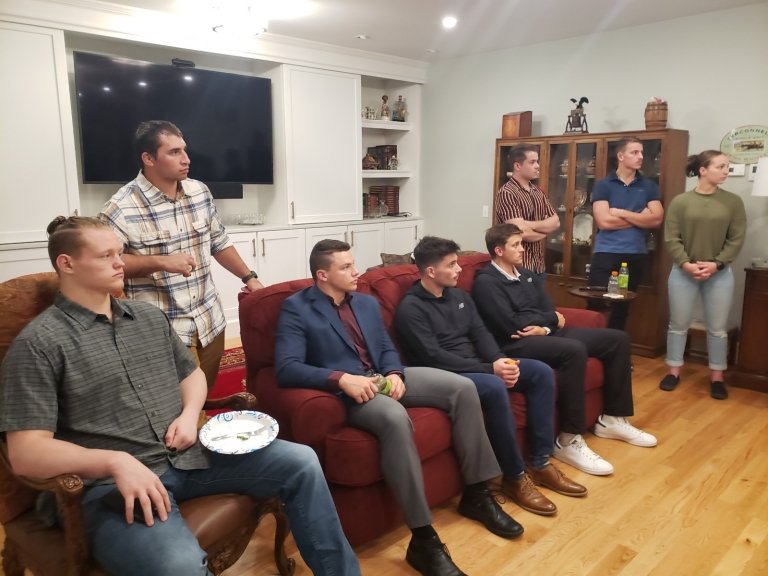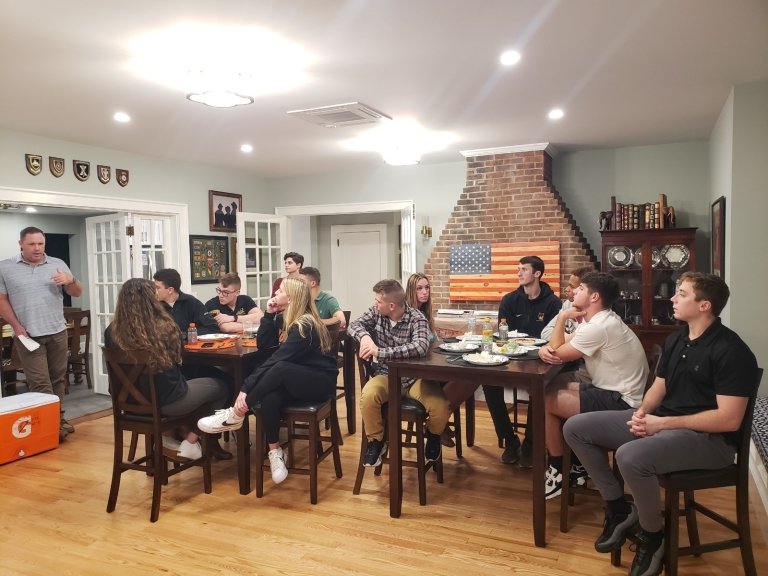Leadership For Every Season
In the fall, Bill McCollough ’91, 56th Commandant of Cadets and Vice President of Student Affairs, and Ed Hockenbury, Director of Athletics, teamed up to help teach leadership lessons to the captains of each of Norwich’s varsity sports.
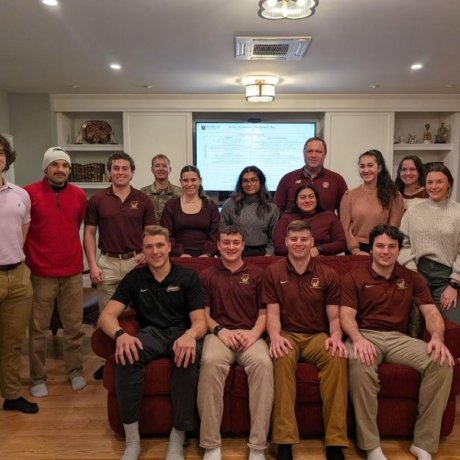
Norwich University is often described as a leadership laboratory, and, just as in any lab class, is built and developed through experiential learning. Leadership within athletic teams has been a constant opportunity to learn, refine, and adapt the skills necessary to improve the overall leadership potential of many student-athletes at Norwich. In fact, Norwich boasts three primary leadership training paths through the Corps of Cadets, Norwich Leadership Academies, and athletics. For over two centuries, the Corps has provided a structured leadership learning model. The two Leadership Academies, Government Service Leadership Academy and Global Leadership Academy, run in parallel to the Corps of Cadets core leadership competencies. Now, a formal leadership training model has been extended to the student-athletes as well.
In the fall, Bill McCollough ’91, 56th Commandant of Cadets and Vice President of Student Affairs, and Ed Hockenbury, Director of Athletics, teamed up to help teach leadership lessons to the captains of each of Norwich’s varsity sports. The idea was to begin with small group training at times of the year which would have the most significant impact. The sports were divided according to their playing season – fall, winter, spring – and the captains from those respective playing seasons met with both McCollough and Hockenbury. The two men bring interesting and poignant perspectives to the teaching sessions. McCollough was himself a Norwich athlete, a member of the Corps of Cadets, and then commissioned as a USMC officer after graduation prior to returning to Norwich. Hockenbury was a college athlete who grew up around Norwich student-athletes since his father was the highly successful long-time men’s basketball coach for the Cadets. Their combined perspectives, especially considering their extensive specific ties to Norwich, created a unique learning environment for the team captains to take advantage of.
Leadership is a skill which can be honed and strengthened through proper training. The concept of training for improvement is naturally engrained in student-athletes. Normally, the focus is on the physical side of being an athlete, but this program brought that same purposeful focus to the leadership aspect of athletic performance. The athletic environment tends to be a unique leadership experience because every situation is slightly different and the consistent yearly changing of the team through graduation and recruiting. The team captain meetings also created a mutual support system to allow the various sport captains to express their concerns or to lean on others for suggestions on how to better improve.
The small group meetings each focused on the same four components: Standards, Commitment, Culture and Sportsmanship, and Character. Often, the primary focus of leadership is the vocal outward leadership, but this program also discussed the less outwardly, yet equally important, aspects of visual leadership.
When considering the standards component, it is crucial for leaders to excel in the fundamentals before establishing team standards. A strong foundation in the basics is essential for enforcing standards effectively. Leaders should be dedicated to their habits and purposeful in shaping them. "We are what we repeatedly do. Excellence, then, is not an act, but a habit." While the origins of this quote remain debated, its message remains profound. Culture, often a popular topic, was given clarity in this program by linking it with sportsmanship. Team culture is built through consistent small actions that set individuals and teams apart from their competitors. Embracing a proactive mindset, where flaws are opportunities for growth, is key. In short, embracing the “I Will Try” attitude. Finally, character was discussed. The great UCLA basketball coach John Wooden famously stated “be more concerned with your character than your reputation, because your character is what you really are, while your reputation is merely what others think you are.” Authentic leadership, rooted in consistency, is emphasized over mere performance. Encouraging self-competition, personal standards, and personal growth is vital. Moreover, the importance of supporting others during character tests was discussed.
The primary objective of teaching leadership is to facilitate personal development among students. Over time, the collective influence of these lessons will grow exponentially, as successive cohorts of team captains impart their knowledge to the broader team. Leadership encompasses continuous learning, development, and assuming responsibility. A key component to the overarching concept of leadership ownership is the intentional sharing of these teachings to others. This year’s lessons in leadership are the first step in creating an improved captain structure which will have long-lasting impacts.
***
About Norwich University
Norwich University is a diversified academic institution that educates traditional-age students and adults in a Corps of Cadets and as civilians. Norwich offers a broad selection of traditional and distance-learning programs culminating in baccalaureate and graduate degrees. Norwich University was founded in 1819 by Captain Alden Partridge of the U.S. Army and is the oldest private military college in the United States of America. Norwich is one of our nation's six senior military colleges and the birthplace of the Reserve Officers’ Training Corps (ROTC). www.norwich.edu
Read More
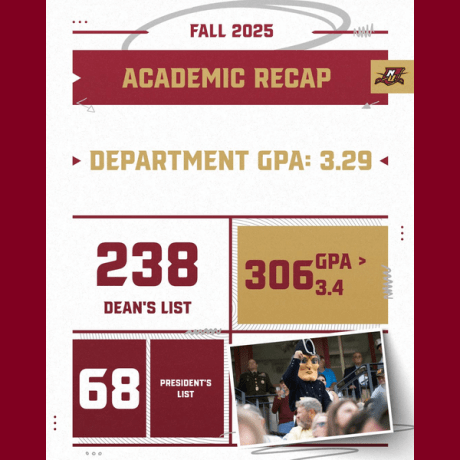
Celebrating Academic Excellence
By Norwich Athletic Communications
Norwich athletics celebrates the student-athletes who have earned recognition in the classroom.
2 min read
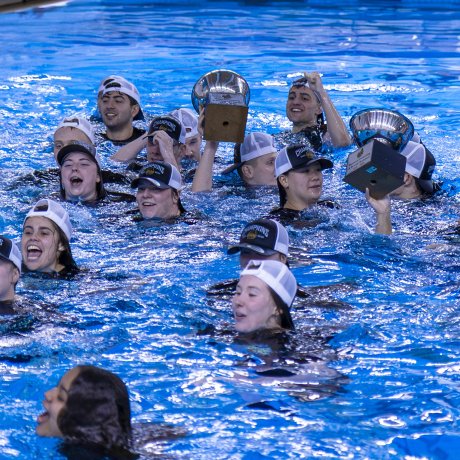
Clean Sweep: Swim and Dive Takes Fourth Straight GNAC Championship
By Norwich Athletic Communications
Allen, Bylow, Laitala, and Wettig highlight weekend of dominant performances.
4 min read
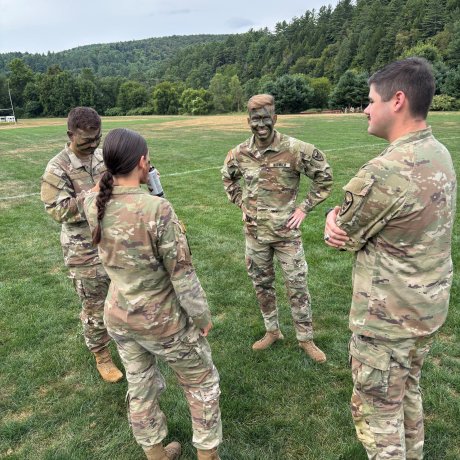
A Different View of The Hill: Sam Eckholm Tells the Norwich Story
By Zack Bennett
From muddy boots at the Dog River Run to conversations with campus leaders, Air Force veteran and internationally known content creator Sam Eckholm immerses himself in Norwich life to capture the spirit, discipline, and “I Will Try” mindset that define the student experience.
10 min read

